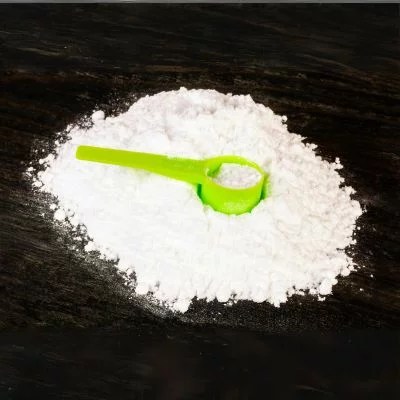Introduction to Creatine and Weight Loss

Welcome to the Super Achiever Club, the nexus of self-improvement, where we enlighten free-thinking individuals on crucial topics in health, wealth, and social dynamics. Today, we delve into the intriguing world of creatine, a supplement revered in fitness and health circles, and its relationship with weight loss.
Contents
Overview of Creatine
Creatine is more than just a supplement; it’s a naturally occurring compound with a pivotal role in energy production, particularly in muscle cells. Let’s break down its essence:
Definition and Biochemical Role
- Creatine: A nitrogenous organic acid produced in the liver, kidneys, and pancreas.
- Function in the Body: Primarily stored in muscles, it helps generate adenosine triphosphate (ATP), the energy currency of the cell.
Historical Context
- Discovery: Identified in 1832 by Michel Eugène Chevreul.
- Evolution: Transitioned from a scientific curiosity to a staple in sports nutrition.
General Uses in Fitness and Health
- Muscle Building and Performance Enhancement: Popular among athletes for its role in improving strength and exercise performance.
- Therapeutic Applications: Investigated for potential benefits in neurodegenerative diseases, heart conditions, and more.
For a deeper understanding, explore our comprehensive guide on What is Creatine? or watch the Video:
Purpose of the Article
This article is a meticulously crafted journey into the realm of creatine and weight loss. We aim to:
Exploring the Relationship
- Primary Focus: Unravel how creatine interacts with the body’s weight loss mechanisms.
- Scientific Examination: Delve into studies and research to understand the effects of creatine on body composition.
Debunking Myths
- Common Misconceptions: Address widespread myths about creatine, such as it causing water retention or weight gain.
- Evidence-Based Insights: Present factual information to clear the fog surrounding creatine’s impact on weight loss.

Practical Application
- Guidance for Use: Offer actionable advice on incorporating creatine into weight loss regimens.
- Safety and Efficacy: Ensure readers are well-informed about the safe usage of creatine supplements.
Embark on this enlightening journey with us as we unravel the facts, dispel the myths, and provide you with the knowledge to make informed decisions about creatine and its role in your weight loss journey. Stay tuned for a deep dive into the scientific and practical aspects of creatine in the subsequent chapters.
Understanding Creatine
Biochemistry of Creatine
Synthesis in the Body
- Production Sites: Creatine is synthesized primarily in the liver, kidneys, and pancreas.
- Amino Acids Involved: It’s formed from arginine, glycine, and methionine.
- Role in Muscle Energy Metabolism:
- ATP Resynthesis: Creatine phosphate donates a phosphate group to ADP to regenerate ATP during high-intensity, short-duration exercises.
- Energy Buffer: Serves as an immediate energy reservoir in muscle cells.
For an in-depth exploration, check out How Does Creatine Work?
Sources of Creatine
Natural Food Sources

- Red Meat and Fish: High concentrations found in beef, pork, and salmon.
- Dairy and Eggs: Moderate amounts present.
Supplements
- Various Forms: Pills, powders, and even gummies.
- Convenience: Supplements provide a more controlled and concentrated source, especially beneficial for vegetarians and vegans.
Learn more about the sources at What Foods Have Creatine?
Creatine Supplementation
Types of Creatine Supplements
- Monohydrate: The most researched and widely used form.
- Micronized Creatine: Enhanced solubility and absorption.
- Creatine HCL and Ethyl Ester: Claimed to have better absorption rates.
For a comparison of types, visit Creatine HCL vs Monohydrate
Effectiveness and Safety Profiles
- Proven Efficacy: Especially in improving strength, muscle mass, and exercise performance.
- Safety: Generally recognized as safe for most individuals when taken at recommended doses.
- Considerations: Always a good practice to consult with a healthcare provider before starting any supplement regimen.
Discover the best options in Best Creatine Supplements
In Summary:
Creatine, a compound pivotal in muscle energy metabolism, can be obtained both from dietary sources and supplements. Its role extends beyond mere energy provision; it’s a catalyst for enhanced athletic performance and muscle development. With various supplementation options available, it’s crucial to choose one that aligns with your health goals and lifestyle.

Creatine and Body Composition
Does Creatine Help You Lose Weight?
Analyzing Scientific Studies
- Mixed Results: Some studies suggest that creatine does not directly lead to fat loss but can enhance muscle mass and overall body composition.
- Mechanisms: Creatine may boost workout performance, potentially leading to more effective workouts and indirectly supporting weight loss.
Impact on Body Composition
- Water Retention: Initial weight gain may occur due to increased water content in muscles, not fat gain.
- Lean Muscle Mass: Over time, increased muscle mass can improve metabolic rate, aiding in weight management.
Creatine’s Impact on Muscle Mass
The Muscle Mass-Metabolism Link
- Increased Muscle Mass: Creatine supplementation can lead to muscle hypertrophy.
- Boosted Metabolism: More muscle mass means a higher resting metabolic rate, which can facilitate fat loss when combined with a calorie-controlled diet.
Understanding the Relationship
- Exercise Performance: Enhanced performance with creatine leads to more effective workouts.
- Nutrient Partitioning: Creatine may help the body use nutrients more effectively for muscle growth, rather than fat storage.
For further details on muscle growth, visit Best Creatine for Muscle Growth.
Key Takeaways:
- Creatine supplementation, while not a direct fat burner, can indirectly support weight loss efforts through enhanced exercise performance and muscle mass increase.
- The relationship between muscle mass and metabolism is crucial. Creatine can be a valuable tool in optimizing this relationship for better body composition.
Creatine in Weight Loss Regimens
Pros and Cons of Creatine for Weight Loss
- Pros:
- Enhanced Workout Performance: Boosts strength and endurance, potentially leading to more effective exercise sessions.
- Increased Muscle Mass: Can lead to a higher metabolic rate, aiding in calorie burning.
- Improved Recovery: Faster recovery can mean more consistent training sessions.
- Cons:
- Water Retention: Initial weight gain due to water retention in muscles.
- Misconceptions: Creatine is not a fat burner; it aids indirectly through muscle mass and workout efficiency.
- For more informations, you can watch these videos:
Suitability for Different Individuals
- Body Types and Goals: More beneficial for those focusing on muscle building along with fat loss.
- Health Considerations: Always consult with a healthcare provider, especially if you have underlying health conditions.
Discover the ideal creatine products for your journey in Best Creatine Supplements.
Should I Take Creatine While Trying to Lose Belly Fat?
Focus on Abdominal Fat Reduction

- No Direct Impact: Creatine doesn’t target belly fat specifically. Fat loss is generally systemic, not localized.
- Role in Overall Fat Loss: By enhancing workout performance, creatine may contribute to a caloric deficit, essential for fat loss.
Integrating Creatine with Diet and Exercise
- Balanced Approach: Combine creatine supplementation with a healthy diet and regular exercise.
- Consistent Workouts: Creatine can help maintain workout intensity, crucial for sustained fat loss.
For more on targeted fat loss, explore Should I Take Creatine While Trying to Lose Belly Fat?.
In Summary:
Creatine, while not a direct tool for weight loss or specific fat reduction like belly fat, can be an effective supplement in a holistic weight loss regimen. It enhances workout performance, aids in muscle growth, and improves metabolic rate. However, its benefits are maximized when combined with a balanced diet and consistent exercise routine.
Creatine and Caloric Deficit
Creatine and Weight Loss
Interactions with Caloric Deficit Diet
- Muscle Preservation: In a caloric deficit, creatine can help preserve muscle mass, essential for maintaining a healthy metabolism.
- Enhanced Gym Performance: Even with reduced calorie intake, creatine can help maintain energy levels during workouts.
Myths vs. Reality
- Weight Gain Misconception: Initial weight gain is often due to water retention in muscles, not fat.
- Long-term Benefits: Over time, the combination of muscle preservation and improved workout performance can lead to more effective fat loss.

Creatine Benefits for Weight Loss
Detailed Analysis
- Boosted Strength and Endurance: Enables more intensive and longer training sessions, crucial for burning calories.
- Increased Muscle Mass: Higher muscle mass elevates resting metabolic rate, aiding in long-term weight management.
Optimizing Creatine Use
- Correct Timing: Understanding the best time to take creatine can optimize its benefits (When to Take Creatine).
- Suitable Types: Choosing the right type of creatine (e.g., monohydrate, HCL) for individual needs (Best Creatine Supplements).
Combining with Other Supplements
- Synergistic Effects: Creatine can be combined with other supplements like protein powders for enhanced results.
- Hydration and Diet: Adequate water intake and a balanced diet are crucial for maximizing the effects of creatine.
For a comprehensive guide on combining supplements, check Best Pre-Workout with Creatine.
In Conclusion:
Creatine, when incorporated into a weight loss regimen that includes a caloric deficit diet, can be a powerful ally. It not only aids in preserving muscle mass and enhancing workout performance but also plays a crucial role in long-term metabolic health and weight management.
Practical Approaches to Using Creatine for Weight Loss
Guidelines for Integration into Weight Loss Plans

- Start with the Basics: Understand the role of creatine (What is Creatine?).
- Determine the Right Dosage: Based on individual needs and goals (How Much Creatine Should I Take?).
- Timing Matters: Optimal times for taking creatine to maximize its benefits (When to Take Creatine).
- Combine with a Balanced Diet: Creatine works best alongside a healthy diet (What does Creatine do).
Selecting the Right Creatine Type
- Monohydrate vs. HCL: Choose a form that suits your body and goals (Creatine HCL vs Monohydrate).
- Quality Matters: Invest in high-quality supplements (Best Creatine Supplements).
Lose Weight on Creatine: Real-Life Case Studies and Success Stories
Inspirational Journeys
- Diverse Experiences: Stories from individuals with varying fitness levels and backgrounds.
- Consistency and Patience: Emphasizing the importance of adherence to both supplement and exercise regimens.
Learning from Successes and Challenges
- Adapting Strategies: How different people adjusted their approach for optimal results.
- Overcoming Plateaus: Techniques used to continue progress when weight loss stalls.
Creatine Good for Weight Loss: Summarizing Evidence and Expert Opinions
Evidence-Based Benefits

- Muscle Maintenance and Metabolic Rate: Scientific studies highlighting creatine’s role in enhancing metabolic health (Creatine Research Studies).
- Workout Enhancement: Expert opinions on how creatine contributes to more effective workouts.
Expert Opinions
- Nutritionists and Trainers: Insights from professionals on incorporating creatine into a holistic weight loss program.
- Long-Term Views: Understanding the role of creatine beyond immediate weight loss.
For a deeper understanding, explore Creatine Benefits.
Conclusion:
Using creatine as part of a weight loss plan requires a nuanced approach that considers individual needs, proper dosage, and timing. Real-life success stories provide motivation and practical tips, while expert opinions and scientific evidence underscore the effectiveness of creatine in supporting weight loss when combined with appropriate diet and exercise. Stay tuned for more chapters that will continue to guide you on your journey to becoming a super achiever in health and fitness.
Myths and Misconceptions
Does Creatine Help With Weight Loss?
Addressing Common Misconceptions
- Myth: Creatine Leads to Fat Loss: Creatine doesn’t directly burn fat. It aids in improving workout performance, which can indirectly support weight loss efforts.
- Reality of Water Weight: Initial weight gain from creatine is often due to water retention in muscles, not an increase in fat.
Clarity on Creatine’s Role
- Muscle Mass and Metabolism: By aiding in muscle growth, creatine can indirectly contribute to a higher metabolic rate, which is beneficial for weight loss.
Learn more about the true effects of creatine in What Does Creatine Do?.
Can You Lose Weight on Creatine?
Separating Fact from Fiction
- Enhanced Exercise Performance: Creatine can lead to more intense and effective workouts, contributing to a higher calorie burn.
- Supporting Evidence: Research indicates that while creatine doesn’t directly cause weight loss, it can contribute to better overall body composition.
Real-World Applications
- Strategic Use: Creatine should be part of a comprehensive weight loss plan that includes diet and exercise.
- Case Studies: Evidence from real-life scenarios where individuals have benefited from creatine in their weight loss journey.

Summary: Evidence and Expert Opinions
Expert Consensus
- Nutritionists and Fitness Experts: Agree that creatine can be a valuable addition to a weight loss regimen when used correctly.
- No Magic Solution: Emphasis on creatine as a supplement to, not a replacement for, proper diet and exercise.
Scientific Perspective
- Studies and Research: Extensive research shows creatine’s role in muscle growth, strength, and exercise performance, all of which are key components in a successful weight loss program.
For a comprehensive understanding, refer to Creatine Research Studies.
Addressing Common Misconceptions

- Myth 1: “Creatine is a magic solution for weight loss.”
- Fact: Creatine doesn’t directly cause weight loss but aids in muscle mass growth and exercise performance, which can indirectly support weight loss efforts.
- Myth 2: “Creatine causes weight gain.”
- Fact: Initial weight increase is mainly due to water retention in muscles, not fat gain.
Providing Clarity
- Role in Exercise Performance: Improves strength and endurance, potentially leading to more effective workouts and thus aiding in weight loss.
- Impact on Muscle Mass: Higher muscle mass increases metabolic rate, which can contribute to fat burning when combined with a calorie-controlled diet.
Discover more about creatine’s real effects in What Does Creatine Do?.

Personal Opinion & Experiences
Since creatine does improve basically every energy-consuming process in your body it also helps you burn some additional fat and lose weight. Might it be directly because of moving more weight in the gym or just by improving your brain functions. Every process needs energy. And please don’t make the mistake of confusing the weight gain at the start of consumption because of increased water retention with fat!
– Felix Hesse (Founder of SAC)
Finding the Best Creatine for You
So now you know everything about creatine for weight loss. But have you found the best creatine to fit your personal needs already? This is not an easy task to do. And that’s why we created specific guides for different forms & all your needs:
| Best Creatine Supplement | Best Creatine for Men |
| Best Creatine Brand | Best Creatine for Women |
| Best Creatine Monohydrate (Powder) | Best Creatine for Muscle Growth & Bodybuilding |
| Best Creatine Powder | Best Creatine for Teens |
| Best Creatine Pills & Capsules | Best Creatine for Bulking & Weight Gain |
| Best Creatine Gummies | Best Creatine for Athletes |
| Best Creatine HCL | Best Creatine for Beginners |
| Best Creatine Creapure | Best Creatine for Weight Loss & Cutting |
| Best Vegan Creatine | Best Creatine for Glute Growth |
| Where to Buy Creatine | Best Creatine for Older Adults |
The Science Behind It
Whenever possible we base our articles on scientific research & studies on Creatine.
Want to know more about it? Visit our dedicated page:

Conclusion
As we wrap up our comprehensive exploration at the Super Achiever Club, let’s recap the pivotal insights about creatine and its relationship with weight loss, and ponder future directions in this field.
Summarizing Key Findings
Creatine’s Role in Fitness and Health
- Muscle Energy and Performance: Enhances strength and endurance, beneficial for intense workouts.
- Indirect Weight Loss Aid: While not a direct fat burner, it supports muscle growth and improved metabolism.
Myths and Reality

- Debunking Misconceptions: Creatine does not cause fat gain; initial weight increase is due to water retention in muscles.
Practical Application in Weight Loss
- Strategic Integration: Best used in conjunction with a balanced diet and regular exercise for effective weight loss.
For a deeper dive, visit Creatine and Weight Loss.
Future Directions
Areas for Further Research
- Long-Term Effects: More studies on the sustained use of creatine during weight loss journeys.
- Creatine in Different Populations: Effects in various age groups, genders, and fitness levels.
Appendices
Case Studies and Testimonials
- Real-World Experiences: Success stories showcasing the impact of creatine on weight loss and fitness goals.
- Lessons Learned: Insights from individuals’ journeys, emphasizing the importance of consistency and balanced approaches.
Frequently Asked Questions
- Common Queries Addressed: Tackling queries about dosage, timing, and combining creatine with other supplements.
References
Academic and Clinical Studies
- Comprehensive List: A curated selection of studies and material for further reading, providing a solid scientific foundation for our insights.
For further scientific details, explore Creatine Research Studies.
In Retrospect:

Our journey through the world of creatine has illuminated its nuanced role in weight loss and fitness. By dissecting myths, presenting real-life examples, and highlighting scientific research, we hope to have provided a clear, comprehensive understanding of how creatine can be an ally in your health and fitness endeavors.
At the Super Achiever Club, we remain committed to guiding you through the maze of health and fitness information, empowering you to make informed decisions and become a super achiever in all aspects of life.



